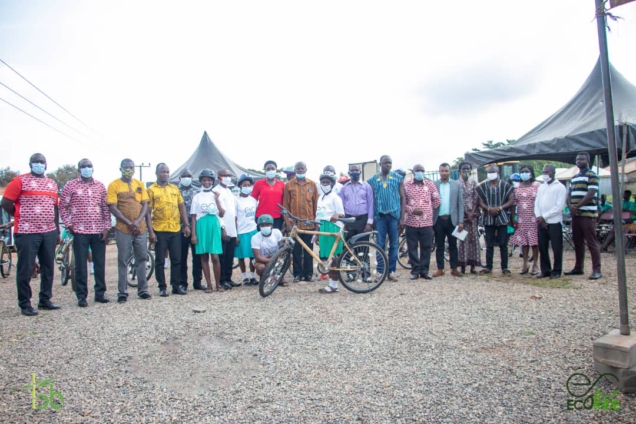Ghana Bamboo Bike initiative is set to make Ghana more cleaner by distributing bicycles and encouraging Ghanaians to ride.
Executive Director, Mrs. Bernice Dapaah says cycling does not require gasoline and, therefore, harmful vehicle emissions are not released into the air when a person is riding their bicycle.
Opting to use your bicycle, she says, is one of the simplest ways to lower environmental footprint.
A reason the initiative would make cycling culture its long-term goal to make cleaner environment.
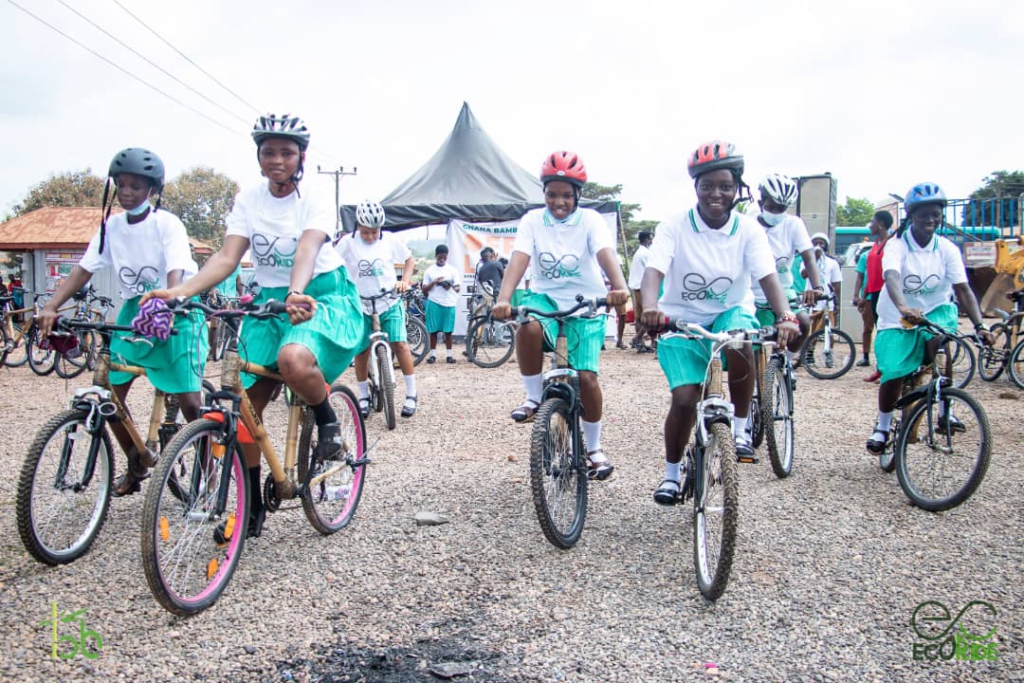
From the foam and plastic in its seats to the petroleum in its tyres, each car is a pollution factory.
But bike significantly reduces transportation emissions while also reducing traffic congestion and the need for petroleum.
Mrs Dapaah says the organization has a shared vision to ensure sustainable mobility for all.
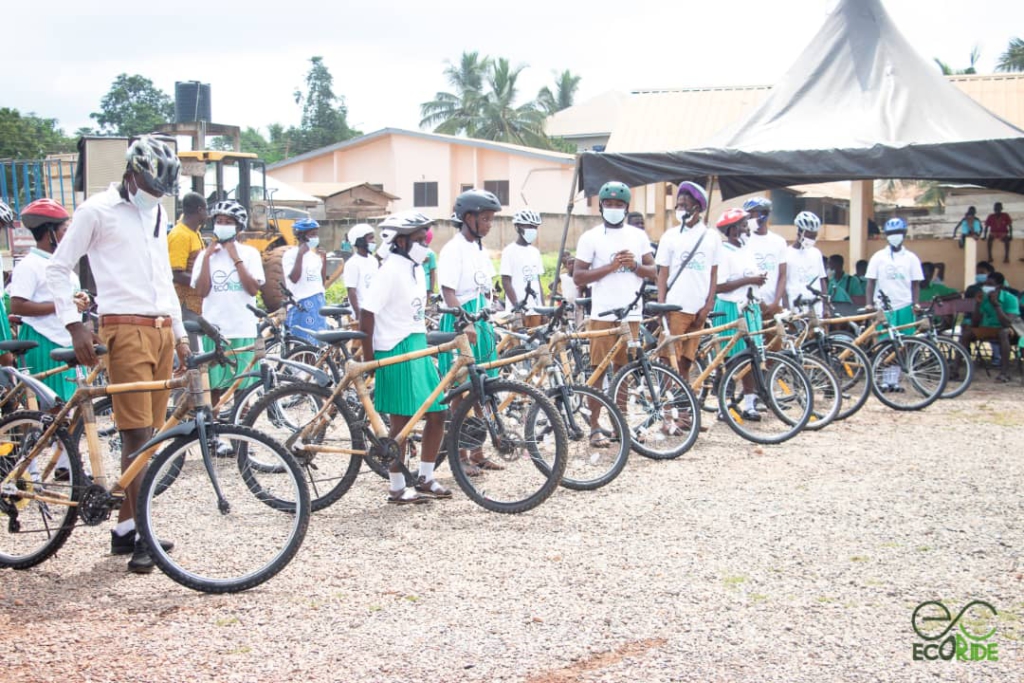
The programme aims to close the mobility gap between rural and urban regions.
Since 2016, the Ghana Bambo Bike initiative has donated more than 700 bikes to rural students so they can easily go to school and encourage cycling.
The most recent is the supply of Forty (40) bicycles to Mansoman senior high, Manso Adubia Senior High, and Bonte Fufuo Senior High Schools in the Ashanti region to alleviate the plight of the students.
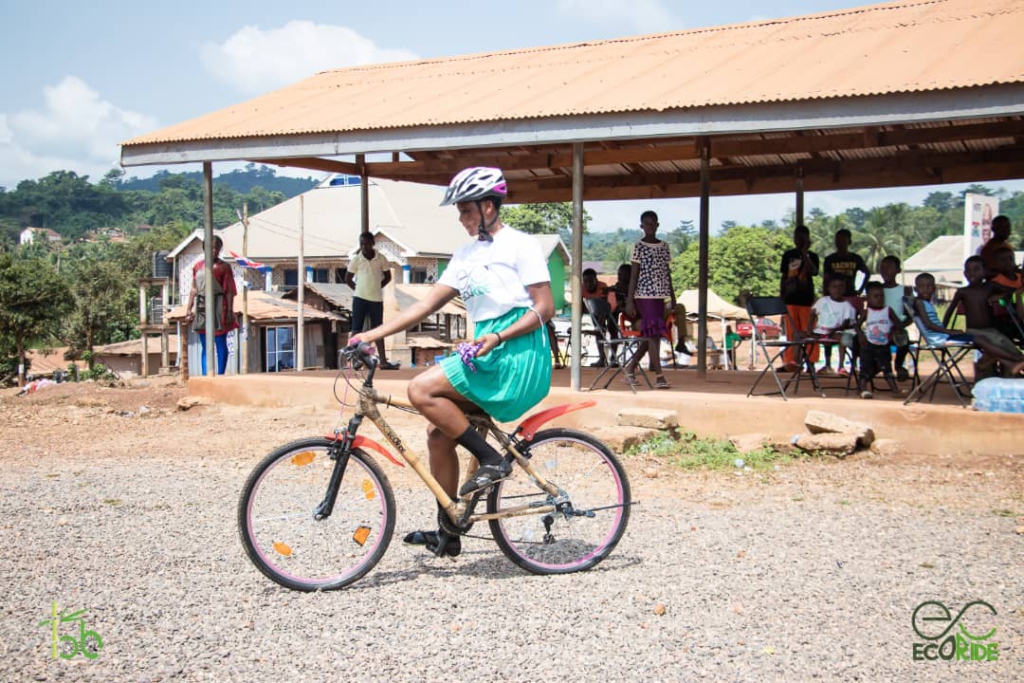
Students who received the bicycles were taken through safety training to ensure the bamboo horses become beneficial.
One of them, Suzana Annor, who is excited by the gesture, believes her dream of climbing the education, at least, for now, would be achieved.
"I won't sleep in a classroom anymore because mostly whenever I walked long distance, I become tired and sleep during classes. Thanks to Mrs Dapaah."
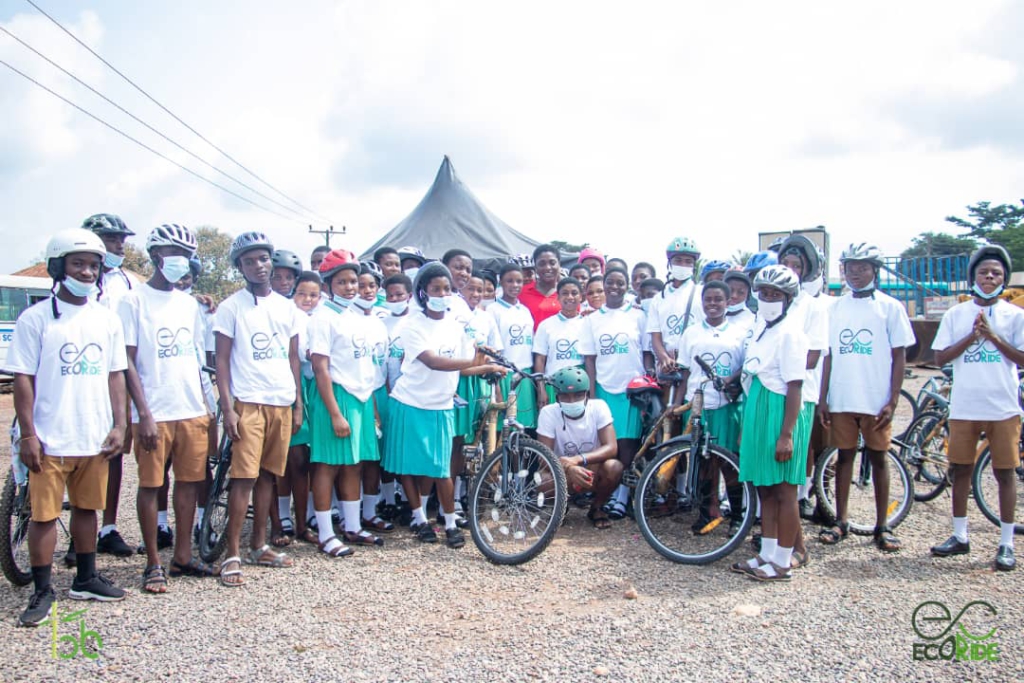
Mrs. Dapaah said the gesture is meant to encourage the student to have an easy way to school.
Walking long distances to school is affecting performance of students
Many students in the hinterland say their desire to have an education may not be realized due to the hours of long walk.
Their reason is they have to trek miles to school and back daily. As a result, some of them go to school late or they don't even go at all.
Primary school pupils spend averagely two hours walking to and from school; a situation many conclude is a disincentive to teaching and learning.
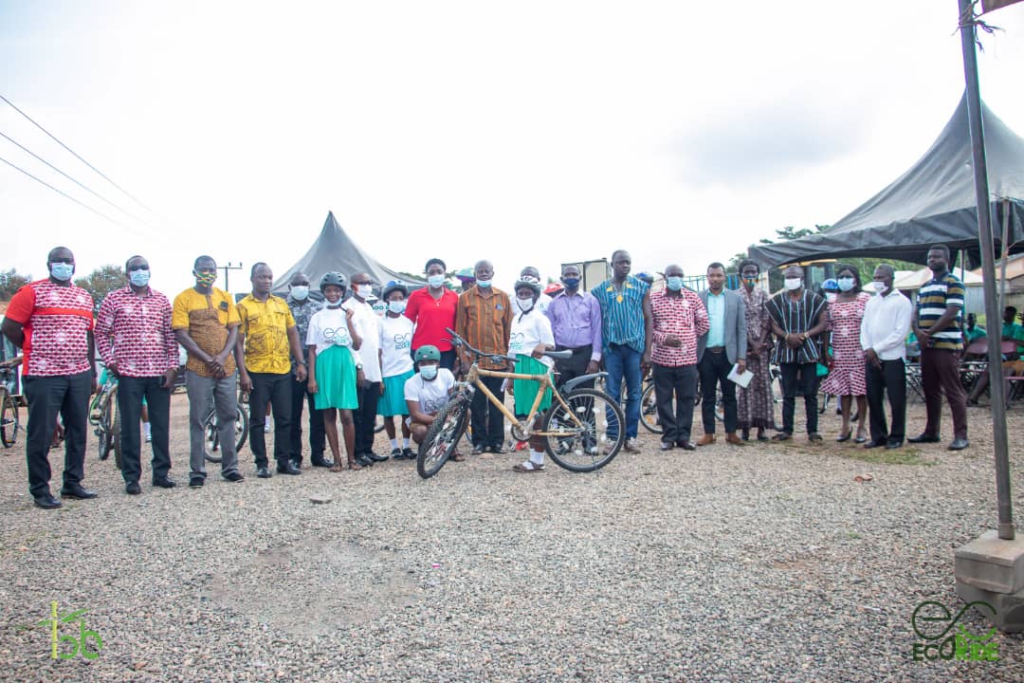
She says education is the bedrock of Ghana's progressive development and it must be the solemn commitment to provide every child the opportunity to attain to greater heights in learning.
"It is a national obligation to eliminate social inequality and limited access to education especially among remote communities," she said3.
Access to school, according to Mrs Dapaah, is the daring first step towards building a promising future for children and should be the priority of all Ghanaians.
"It is a course requiring the contribution of government, organizations and individuals."
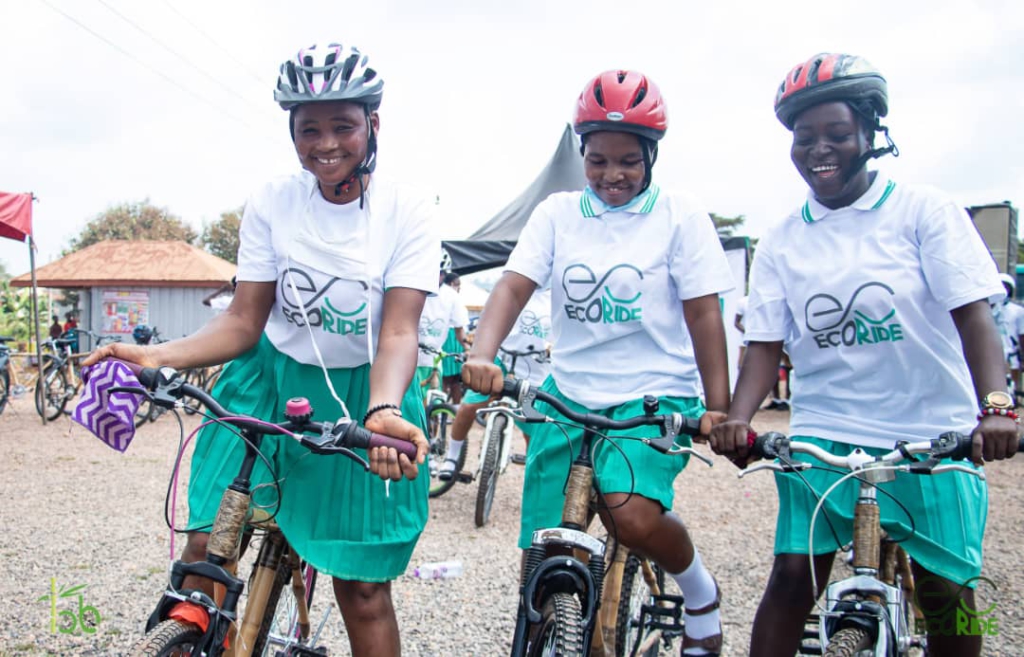
Ghana Bamboo Bikes Initiative has therefore announced its 5-year Cycle to School Program in which thousands of bamboo bicycles will be freely given to transport-dependent marginalized school children.
The program aims to promote inclusive education through increased access and participation in school.
"For a child far away in an unknown community, a bicycle could be the difference between success and failure in life."
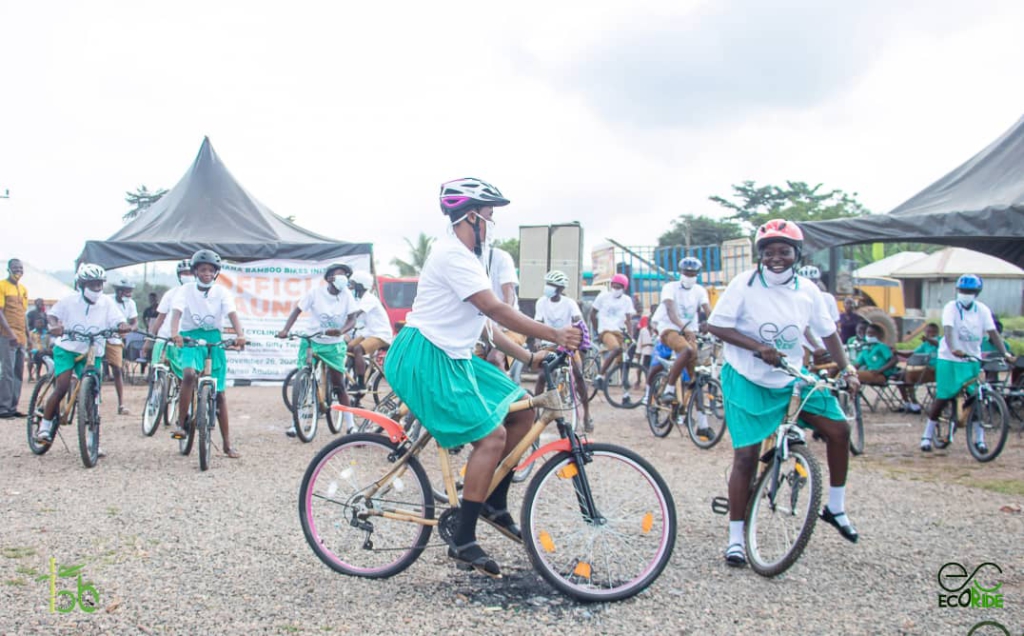
Parents of students in the Manso area in the Ashanti region have been advised not to use bicycles donated to their children to farm in order to protect the lifespan of the bicycle.
Executive Director of Ghana Bambo Bike Initiative, Bernice Dapaah, says experience from past beneficiaries reveals some parents ride bicycles meant for students to farms which is affecting their life expectancy.
Proper use of the bicycle could extend its lifespan for years, but Miss Dapaah says that's not the information they gather from some student beneficiaries.
The organization is working closely with the Ghana Education Service (GES) and Ministry of Education to establish the first modern semi-automated bicycle assembly plant, to enhance technical and vocational skills training and deepen practice-based learning.
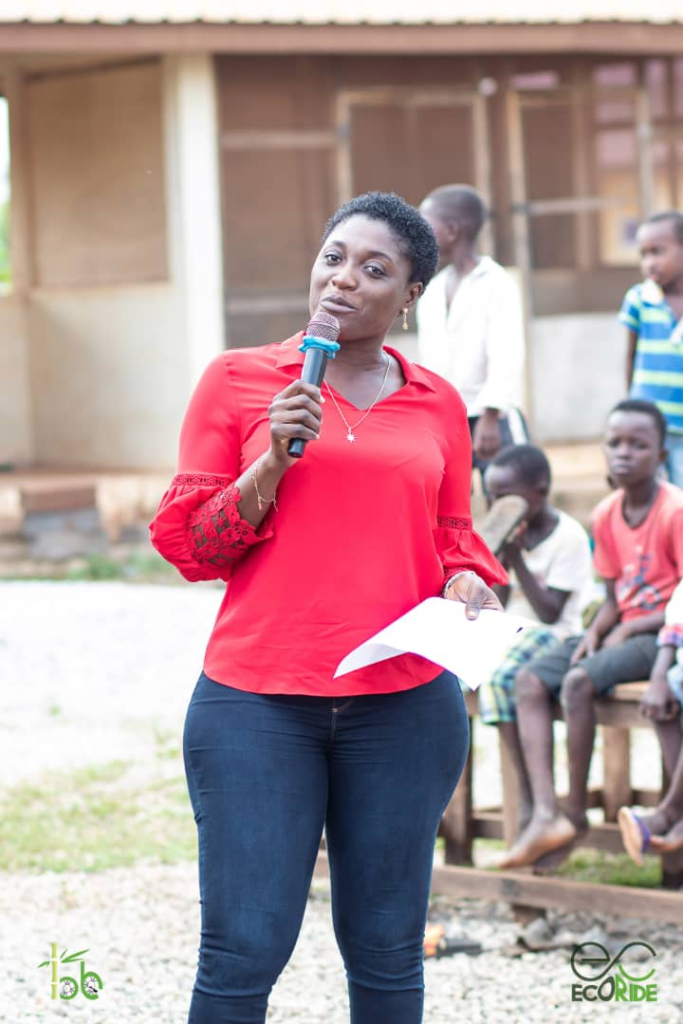
According to Mrs Dapaah, that's the long term goal of the organization.
"We want to create greater opportunities for industrial employment for technically equipped trainees, especially in the bicycle industry."
Latest Stories
-
Ejura Sekyeredumase MP demands autopsy on resident who died in Police custody
23 minutes -
Kusaas Diaspora Union launched to spearhead global unity, development
2 hours -
Bright Simmons: Mahama’s reduction of ministries to 23 amid calls for efficiency, cost-cutting
2 hours -
Maxwell Hanson seeks apology and compensation from Anim Addo over defamation claims
3 hours -
We listen, we don’t judge: What they don’t tell you about being an entrepreneur
3 hours -
Mahama orders Lands Commission to halt sale of State Lands
4 hours -
Chiesa on target as Liverpool ease past Accrington Stanley
5 hours -
Everton appoint Moyes as manager for second time
5 hours -
WACCE describes 2024 elections as one of the violent, deadliest in the 4th Republic
5 hours -
Volta Region movie industry stagnated, needs investors to push – stakeholders
5 hours -
Petition against Chief Justice reflects broader public concerns about Judiciary – Joyce Bawa
5 hours -
Northern Ghana won’t experience fuel shortage – NPA assures
5 hours -
Calm restored in Ejura after mob attack on Police Station
5 hours -
18-year-old herdsman remanded over murder of younger brother
5 hours -
GSTEP 2025 Challenge: Organisers seek to support gov’t efforts to tackle youth unemployment
7 hours

